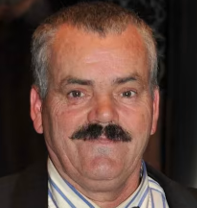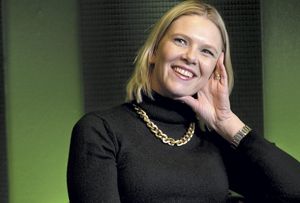More actions
imported>TCHGrandTarkin |
imported>TCHGrandTarkin No edit summary |
||
| Line 1: | Line 1: | ||
<span style="font-size:10px;display:block;text-align:center;">← September 3022 ― February 3023 ― ''Next'' →</span> | |||
{{Tarkelection2|date=3 February 3023|turnout=56.9% (-18.3)|incumbent_prime_minister=Grace Daines, | |||
Stability|subsequent_prime_minister=Ramsay Bowell, | |||
Social Democrats}} | |||
The '''February 3023 Wiltshire general election''' was held on Friday, 3 February 3023 as a snap general election. Called by Social Democrat [[President of Wiltshire|President Frank Eddington]], the election was scheduled very suddenly, following incumbent [[Stability Party of Wiltshire|Stability]] [[Prime Minister of Wiltshire|Prime Minister]] [[Grace Daines]]' inability to lead the [[Daines Ministry (Wiltshire)|Stability governmen]]<nowiki/>t without "more political uncertainty". In January 3023, with more threats to Grace Daines' leadership, Eddington called the election in order to "provide certainty to the country and the economy". Considered to be a major political realignment, it was one of the most eventful elections in Wiltshirian history. Three new political parties emerged and entered the [[Wiltshire National Assembly|National Assembly]] and the election marked the worst defeat for a governing party at a national level in history. In a landslide, the Social Democrats, led by [[Ramsay Bowell]], won a [[Bowell Ministry (Wiltshire)|majority government]]. Bowell was soon after appointed Prime Minister, ending the Second Stability government. | The '''February 3023 Wiltshire general election''' was held on Friday, 3 February 3023 as a snap general election. Called by Social Democrat [[President of Wiltshire|President Frank Eddington]], the election was scheduled very suddenly, following incumbent [[Stability Party of Wiltshire|Stability]] [[Prime Minister of Wiltshire|Prime Minister]] [[Grace Daines]]' inability to lead the [[Daines Ministry (Wiltshire)|Stability governmen]]<nowiki/>t without "more political uncertainty". In January 3023, with more threats to Grace Daines' leadership, Eddington called the election in order to "provide certainty to the country and the economy". Considered to be a major political realignment, it was one of the most eventful elections in Wiltshirian history. Three new political parties emerged and entered the [[Wiltshire National Assembly|National Assembly]] and the election marked the worst defeat for a governing party at a national level in history. In a landslide, the Social Democrats, led by [[Ramsay Bowell]], won a [[Bowell Ministry (Wiltshire)|majority government]]. Bowell was soon after appointed Prime Minister, ending the Second Stability government. | ||
Latest revision as of 11:39, 2 February 2023
← September 3022 ― February 3023 ― Next →
The February 3023 Wiltshire general election was held on Friday, 3 February 3023 as a snap general election. Called by Social Democrat President Frank Eddington, the election was scheduled very suddenly, following incumbent Stability Prime Minister Grace Daines' inability to lead the Stability government without "more political uncertainty". In January 3023, with more threats to Grace Daines' leadership, Eddington called the election in order to "provide certainty to the country and the economy". Considered to be a major political realignment, it was one of the most eventful elections in Wiltshirian history. Three new political parties emerged and entered the National Assembly and the election marked the worst defeat for a governing party at a national level in history. In a landslide, the Social Democrats, led by Ramsay Bowell, won a majority government. Bowell was soon after appointed Prime Minister, ending the Second Stability government.
Incumbent Prime Minister Grace Daines was elected Leader of the Stability Party in the preceding December following the political revolt against Mario Giordano. Giordano's Stability government was elected on the basis of introducing new social welfare programs, including Universal Basic Income (UBI) and a national health insurance bill. However, when Giordano introduced historic tax hikes to pay for social welfare programs - against his manifesto commitment of not raising taxes - he was quickly ousted as leader and Prime Minister. Daines' election to the position of Prime Minister was an historic one. It marked the first time a social conservative had held the office of Prime Minister in history, with her government representing many of the most socially conservative elements of Wiltshirian politics. While her government looked to be relatively stable, her emphatic endorsement of Wiltshire's membership of the Doggerland Covalence Mechanism (DCM), a free trade bloc that held regulatory authority over Wiltshire, broke down much of the confidence in her government. Eventually, after Assembly defections and calls for her resignation, President Eddington stepped in and called the snap election.
The opposition Social Democratic Bloc (SDB) was formed just prior to the election as a merger of the Wiltshire Labour Party and the Lorikeet-based Kaitiaki Ropu. Labour leader Ramsay Bowell became leader of the Social Democrats, promising an investment-based program to "rebuild Wiltshire", including renationalization and trade protectionism. The Social Democrats won the largest single-party majority in Wiltshirian history with 69 seats (a 38 seat majority), beating Eddington's own 3017 landslide victory.
The governing Stability Party faced electoral oblivion, losing 49 of its 53 seats won in the previous election. It fell into a joint fourth place, behind the Christian Alliance and the Social Credit Party, and joint with the Free Voters of Wiltshire. The Christian Alliance, led by Mateo Menendez, became the official opposition with 17 seats.
Results
Aftermath
Government
The subsequent government was that of a majority government led by the Social Democrats. Bowell became Prime Minister and began to implement his "rebuild Wiltshire" agenda.
Stability leadership crisis
Grace Daines resigned immediately following the results of the election, stating that she would continue in the National Assembly as an opposition backbencher. Given the scale of the defeat, most of the "leadership talent" within the Stability Party had lost their seats in the general election. Only four Assembly Members remained, including the resigning leader. In addition, the defeat shook the confidence of many local government politicians of the Stability Party. The last remaining Stability Mayor, Rufus Kaine, defected to the Free Voters, along with a significant proportion of their local councillors.
With so few members remaining, Sir Elias Visser - who was able to win a seat in Heuvelberg - won the leadership without contest.






